Amid a sea of desks in an empty classroom, Theresa May is gamely making herself at home on a plastic school chair.
As we speak, a few miles across the city, men competing to take her job are busy with another set of hustings. By the end of July, the Prime Minister will be out of Downing Street for good. But for now, Mrs May looks surprisingly relaxed and reinvigorated, having spent an hour chatting to pupils and teachers here in South London’s Southfields Academy about her plans to help tackle budding mental health crises earlier in life.
She tells Grazia she hasn’t given any thought to plans for life after Number 10, but eventually confesses there is one thing she’s looking forward to doing with all that spare time: ‘Maybe I will be able to get to see a bit more cricket this summer.’ The Ashes series comes to England in August and the Prime Minister is a lifelong cricket fan. Before all that, however, she has a wicket of her own to defend. The new measures she’s unveiling in Southfields, which range from training teachers to spot mental health problems to granting sufferers who fall into debt a ‘breathing space’ from being chased by bailiffs while they’re seeking treatment, have been welcomed. But campaigners say many patients are waiting too long for treatment despite the promise of an extra £2.3 billion a year for NHS mental health services.
Since failures in mental health treatment were one of the burning injustices she vowed to tackle when she first became Prime Minister three years ago, there’s a sense of unfinished business here. These plans form part of a recent flurry of activity from Downing Street, with big policies, including a commitment to reduce carbon emissions to net zero by 2050, rolled out in what’s being seen as an attempt to create a legacy for which Britain’s second female Prime Minister can be remembered. ‘I had wanted to get the Brexit issue done and dusted and we could have if people had voted for the deal,’ she says, when asked if imminent departure has focused her mind on what she really wants to have achieved. ‘What this shows is what more we can do as a Government, what more as Conservatives in Government we can do for the country outside the Brexit issue. There’s been huge focus on Brexit but, actually, all of these other issues are important – mental health is incredibly important for young people. Climate change, that’s important for the future of our planet.’
These new commitments have been controversial in some parts of the party, with the Chancellor, Philip Hammond, reportedly fighting Downing Street’s desire to pledge billions more for education and some MPs arguing the next leader should be free to set their own priorities. Theresa May won’t say who she wants to win the Tory leadership contest and countered speculation that she might have secretly voted for Rory Stewart – the outsider candidate who went viral by accusing the other candidates of not being honest about how difficult Brexit is, before he was knocked out last week – by insisting that she hasn’t told anyone how she voted.
It’s clear, however, that she does want her successor to pick up where she’s been forced to leave off. ‘I would hope that my successor takes this forward, I think they are absolutely crucial issues that need to be addressed. There’s more to be done on mental health. We’ve made some significant announcements, more money is going into this area, but we need to ensure this isn’t a one off – it’s a continuous process of making sure that mental health is taken as seriously as physical health.
The last three years of guerrilla warfare over Brexit have been gruelling for everyone in Government, with talk of burnout across Whitehall. So how does Mrs May protect her own mental health in one of the most stressful jobs in the country? ‘I think it’s important when you are in any job with pressures to first of all always be clear about the goals and what it is you want to achieve,’ she says. ‘Having good support around you, a good team around you, is also important in terms of getting the job done.’ She says she’s trying to create a culture of openness about mental health in Westminster too: ‘I would hope that in the environment I’m in that people do feel able to talk about their mental health. Obviously, there’s been a lot of work in Parliament, like Charles Walker (the Tory MP who has suffered from OCD) who was my first colleague to stand up and say that he had mental health problems. That openness, which can’t have been easy... that’s been very important in hoping to overcome that stigma.’
Meanwhile, the reason she herself keeps returning to the issue, she says, is that she sees it as a way of unlocking people’s potential. ‘I have great ambition for young people that they should be able to go as far as their talents and hard work will take them. Having good mental health is an important part of that, people being able to achieve what they want to achieve in life.’ And with that she is off, back to Westminster, and the race to achieve whatever she still can before her time as Prime Minister runs out.
Join Grazia’s campaign to drive more support for mental health in the workplace. Visit wheresyourheadat.org.
Inspiring Female MPs - Grazia (slider)
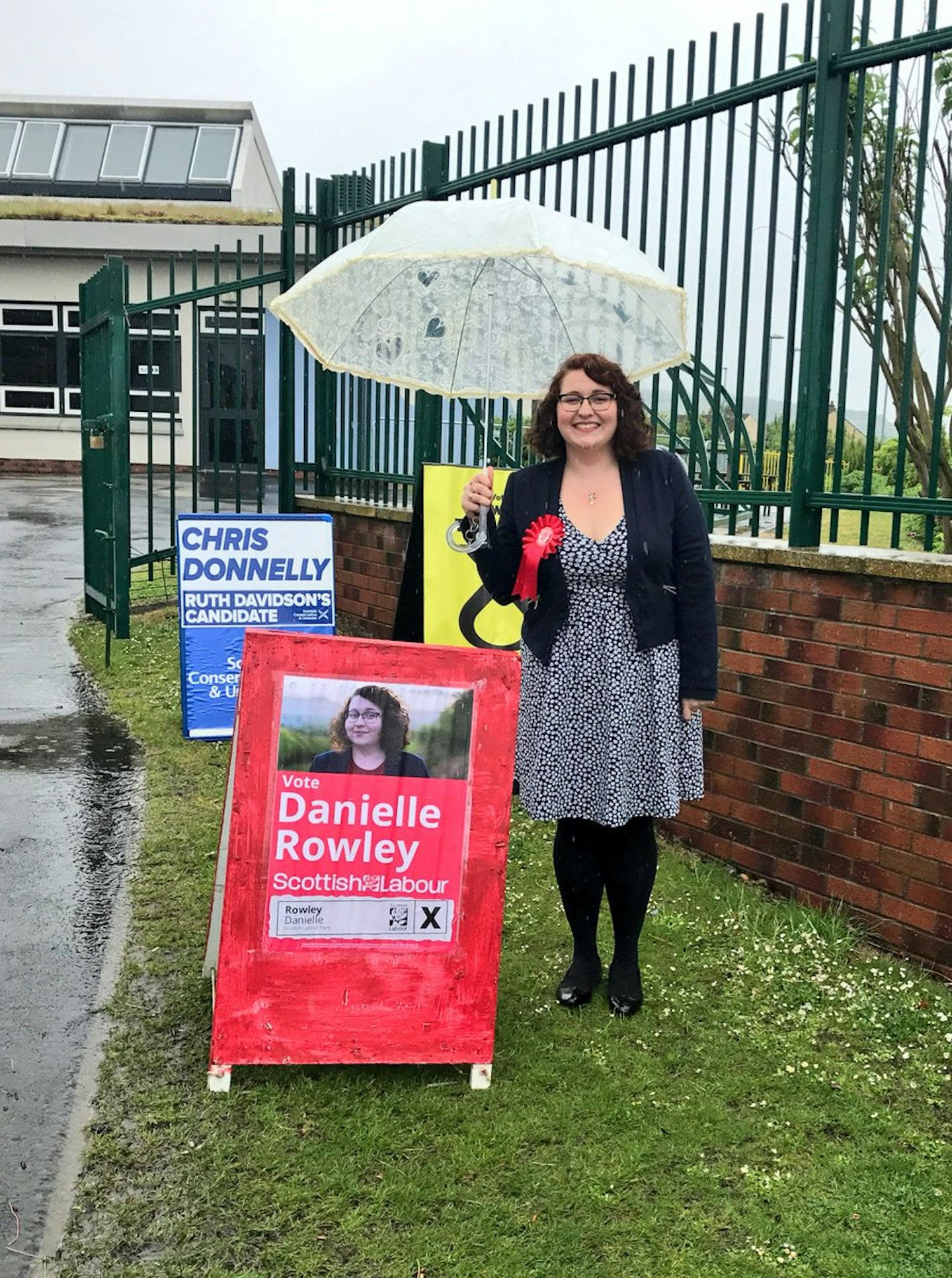 1 of 10
1 of 10Danielle Rowley, 28, Midlothian Scottish Labour MP
Speaking about her groundbreaking announcement, Danielle perfectly highlighted just how ridiculous it is that it's even a taboo to mention your period. She said on Twitter:'A lot of unexpected coverage of me talking about my period - which is great, but also highlights the need to talk about periods more openly.A woman mentioning her period shouldn't be such huge news - let's use this opportunity and work together to get to a place where it's not!'
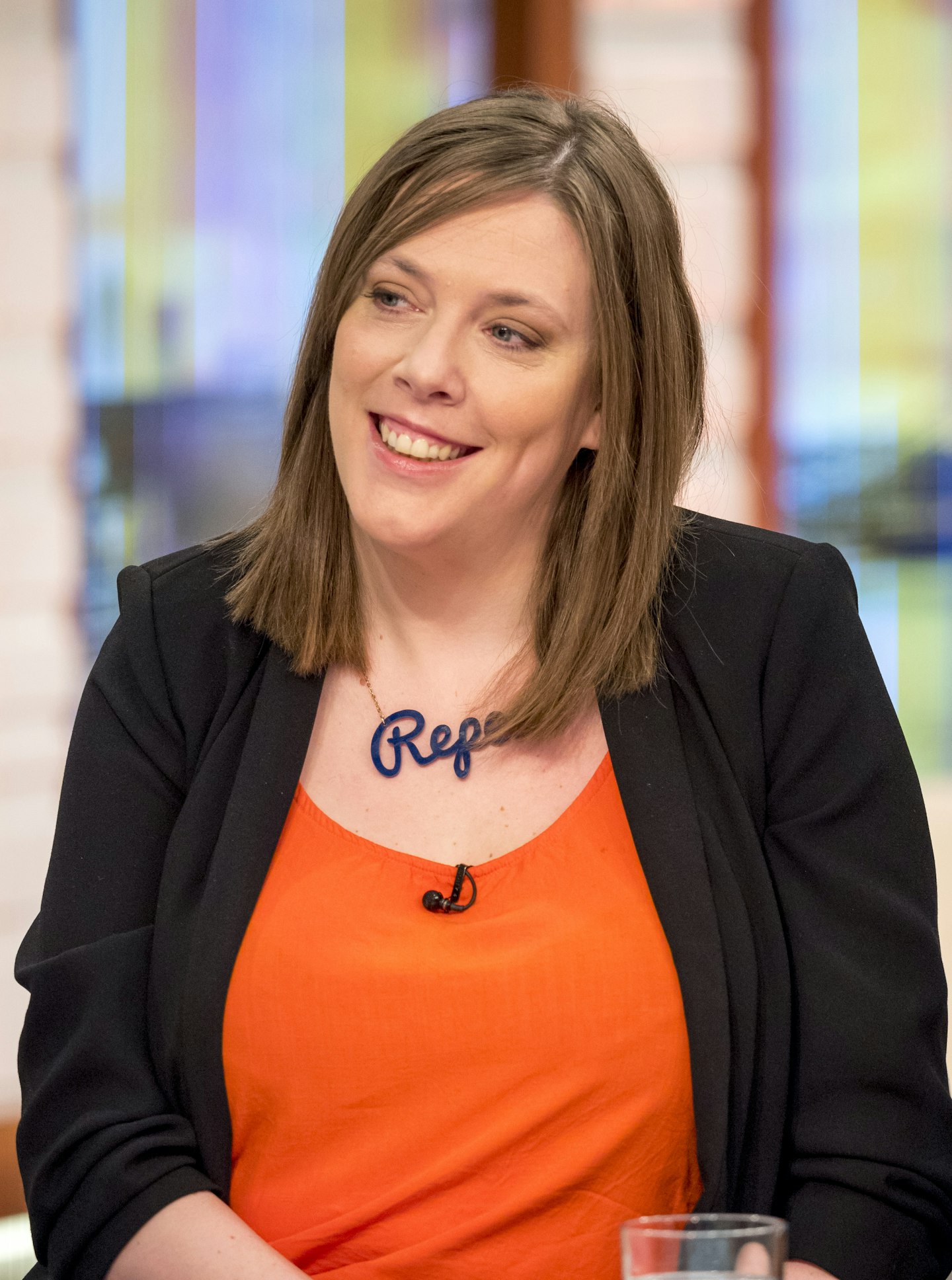 2 of 10
2 of 10Jess Phillips, 36, Birmingham Yardley Labour MP
Jess brought social media trolls to account when she called for those who post abusive messages online to lose their anonymity. The MP told parliament that she once received 600 rape threats in one night and is threatened with violence and aggression every single day online. The online community is so hostile towards women that Amnesty International have led a campaign calling for Twitter to take greater responsibility for preventing online abuse. Jess told the House of Commons that people should have to disclose their real identity to social media platforms, with hope that it would not only deter people from abusing women online but also enable us to hold them to account.
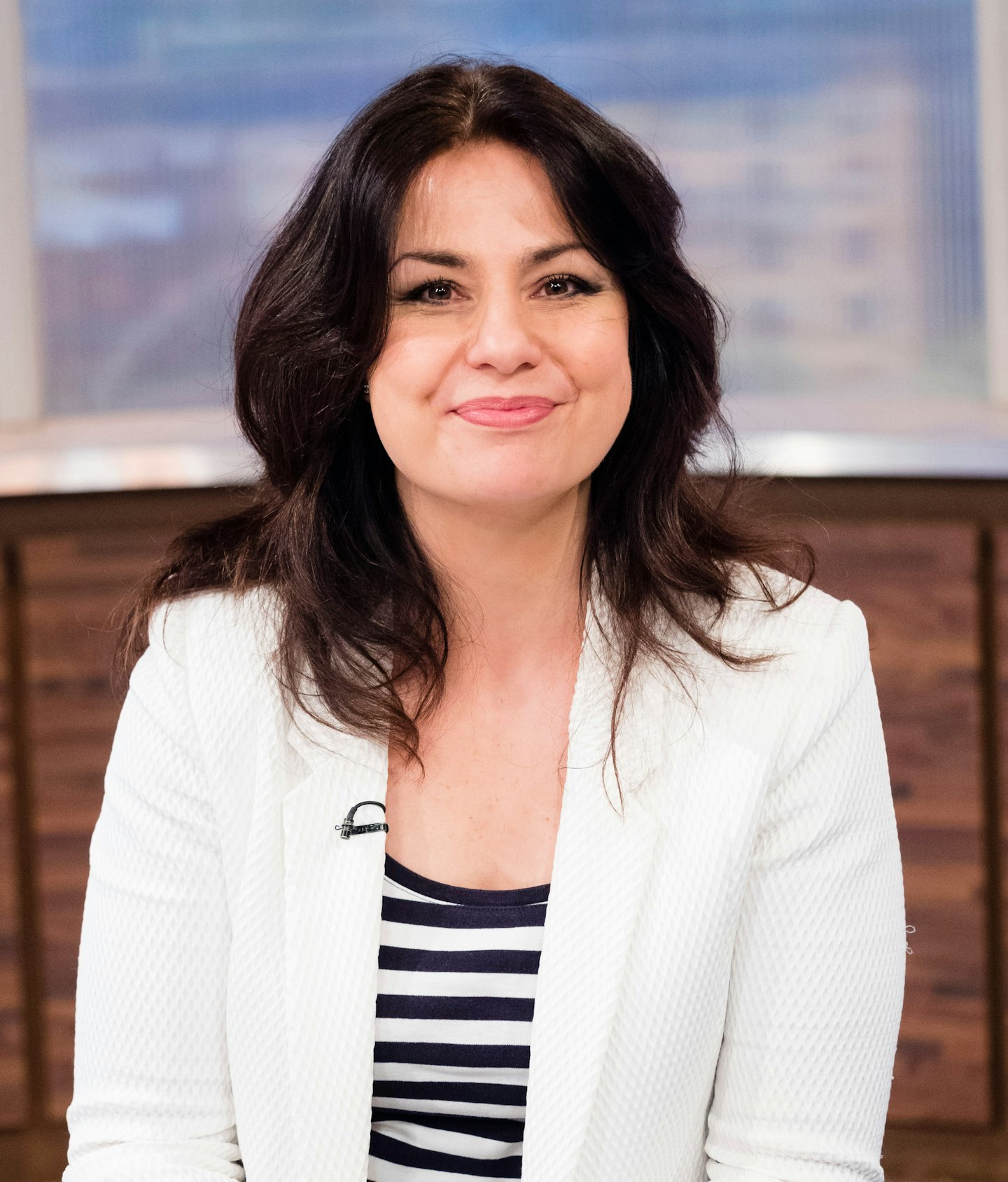 3 of 10
3 of 10Heidi Allen, 43, South Cambridgeshire Conservative MP
Heidi, alongside Jess Phillips, shared an emotional account of her own abortion with parliament earlier this month. In an attempt to reform Northern Ireland's abortion laws, she told the Cambridge independent that she felt she needed to share her story:'I had intended to say it because I had a feeling nobody else would.'I thought it probably needed saying.'I suppose it is very easy to make issues like that just about procedure and legislation and words and policy but, actually, it is about people's lives.'Jess Phillips too opened up about her own abortion, also sharing harrowing stories from women in Northern Ireland who had terminated pregnancies.
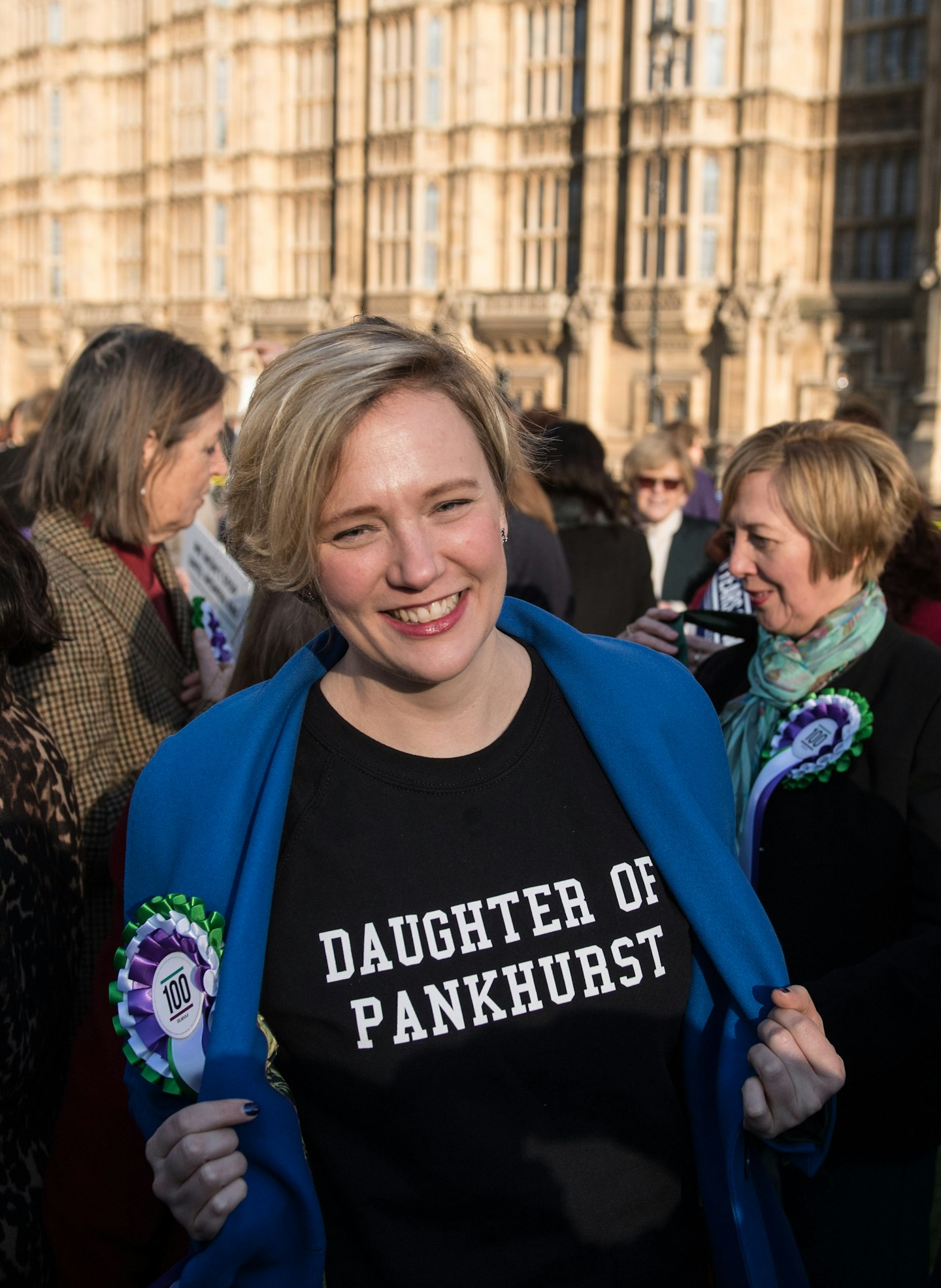 4 of 10
4 of 10Stella Creasy, 41, Walthamstow Labour MP
The original lead of cross-party calls for Northern Ireland's abortion laws to be brought in line with the rest of the UK's, Stella received tons of hate mail over her campaign to protect women's right to choose. It was in her call for debate over abortion that Heidi Allen and Jess Philips were able to talk about their own terminations.
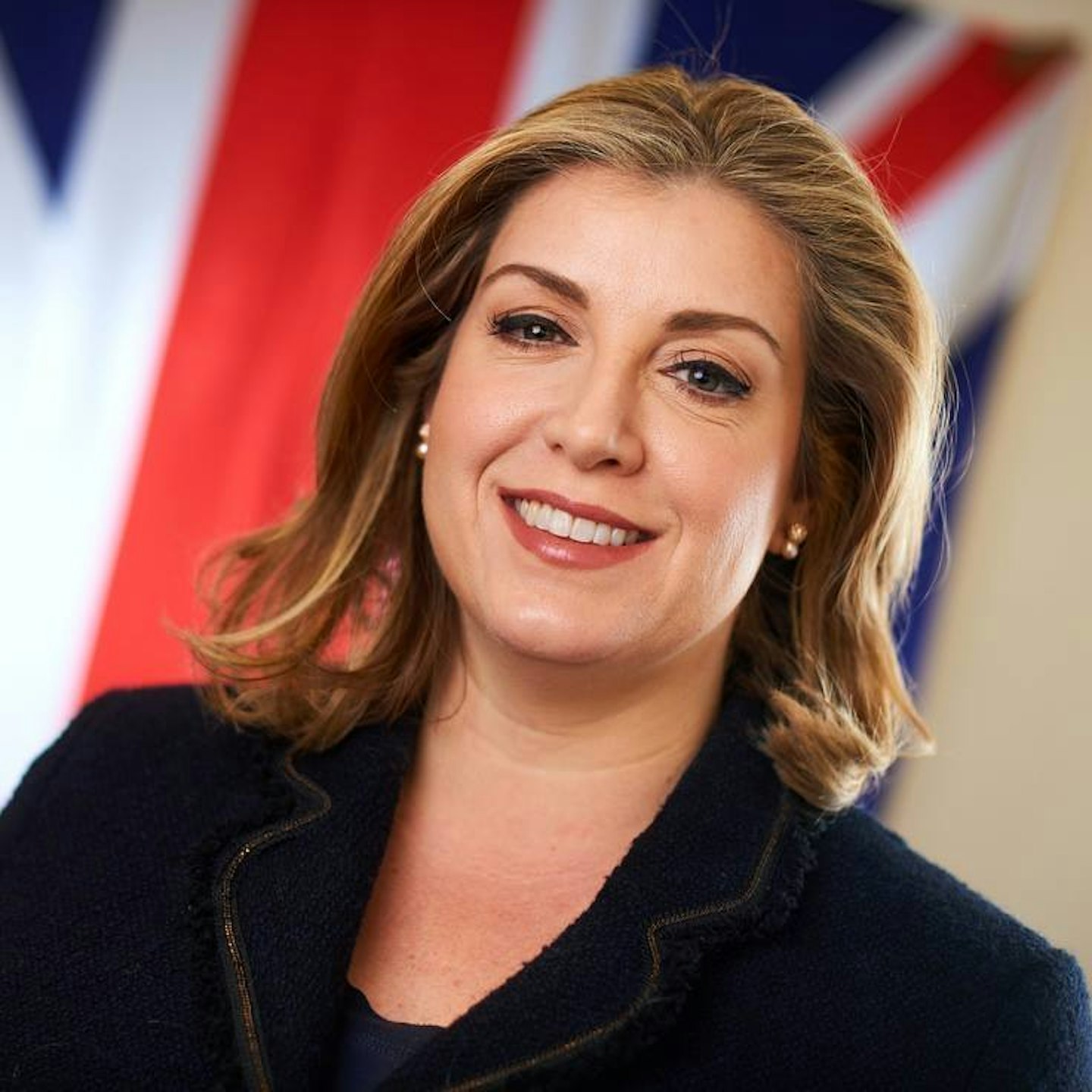 5 of 10
5 of 10Penny Mourdant, 45, Portsmouth North Conservative MP
The Minister for Women and Equalities, Penny Mourdant launched the National Action Plan on Women, Peace and Securitywhich calls for more women to be at the centre of the DFID's peace, security and humanitarian programmes. As secretary of state for international development, she has attempted to reform the aid sector by creating an independent safeguarding unit that prevents exploitation. This comes in the wake of a series of sex scandals against leading charities earlier this year.
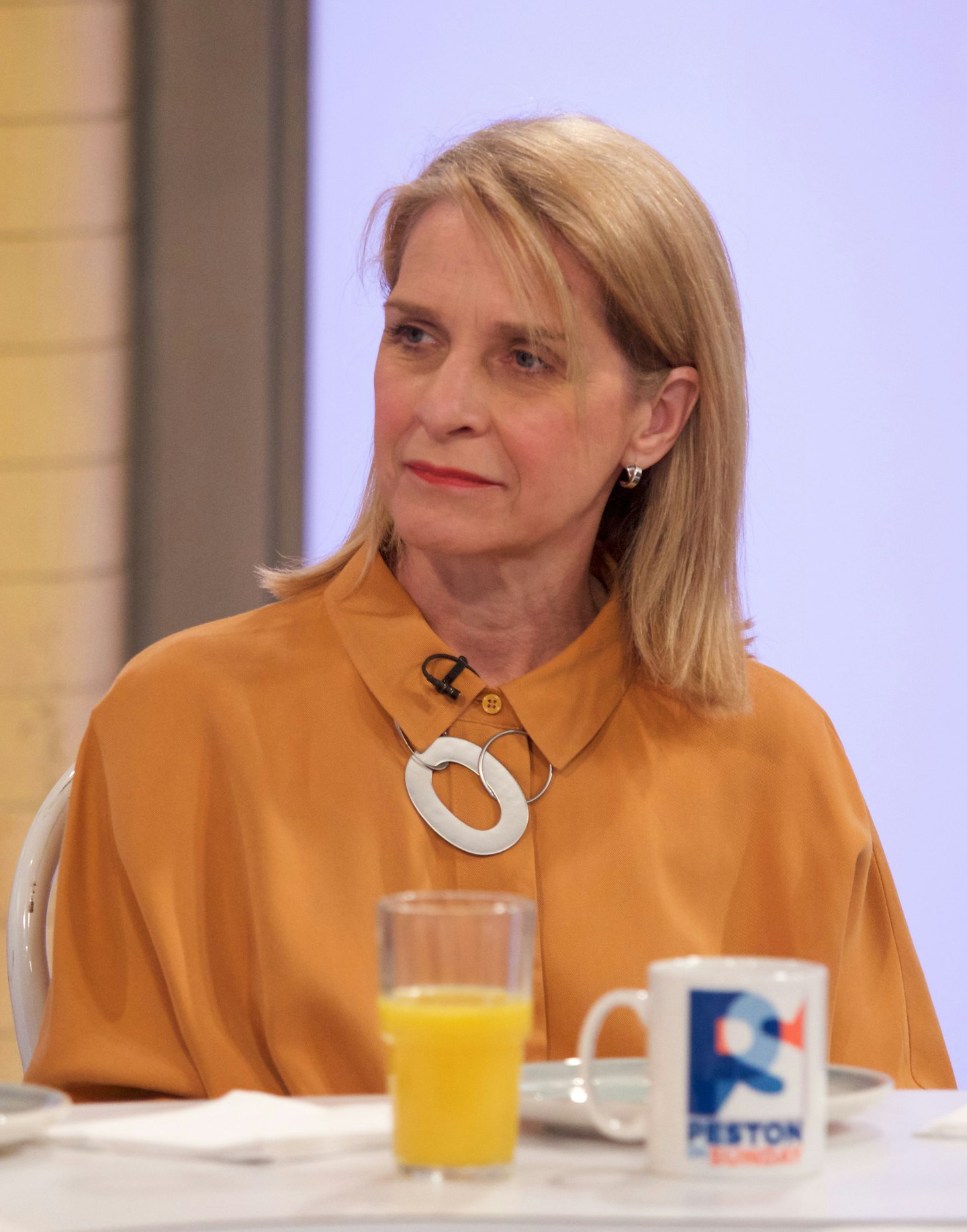 6 of 10
6 of 10Wera Hobhouse, 58, Bath Liberal Democrat MP
Wera Hobhouse brought Gina Martin's upskirting campaign to parliament as a private members bill set to outlaw the vile crime. While the bill was subsequently blocked by two male MPs, a third reading of the bill is set to continue on the 6th of July with Gina stating 'the Government Bill will become law as it'll get through the later stages more quickly and won't be objected to.'
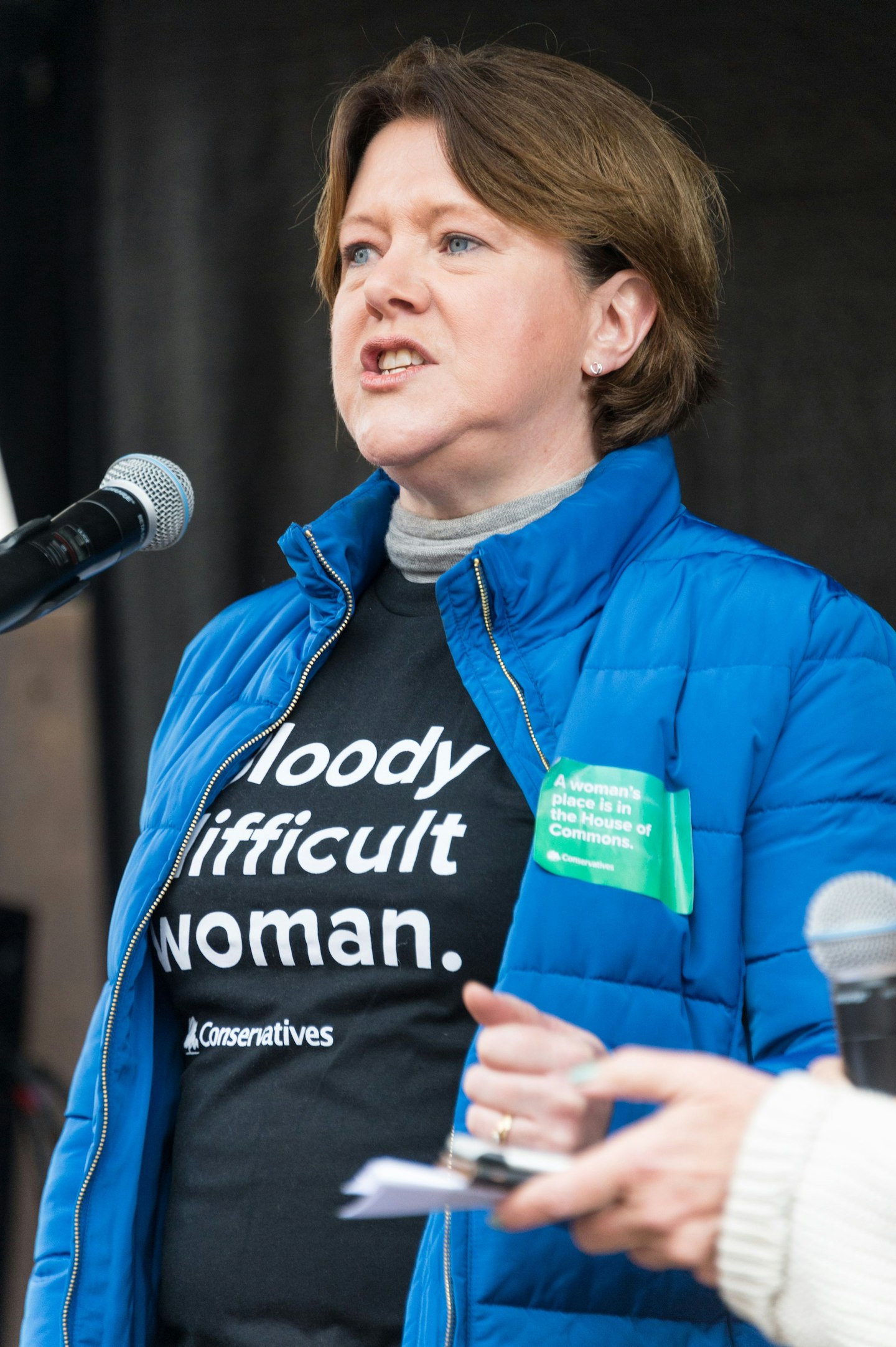 7 of 10
7 of 10Maria Miller, 54, Basingstoke Conservative MP
It was off the back of the upskirting bill that Maria Miller and Jess Phillips have met with Wera Hobhouse in an attempt to include a revenge porn amendment. It would ensure there was a blanket ban on voyeuristic images regardless of the intention in taking it, as the MPs feared people would attempt to bend the wording of the upskirting law to avoid conviction by arguing they took the image with no intention of causing distress. They also wanted to introduce an amendment that would ban false pornographic images, in which faces are photoshopped onto explicit images. However, they were told it was impossible to introduce further amendments. This comes after Love Island stars Zara McDermott and Laura Anderson became victims of revenge porn this week.
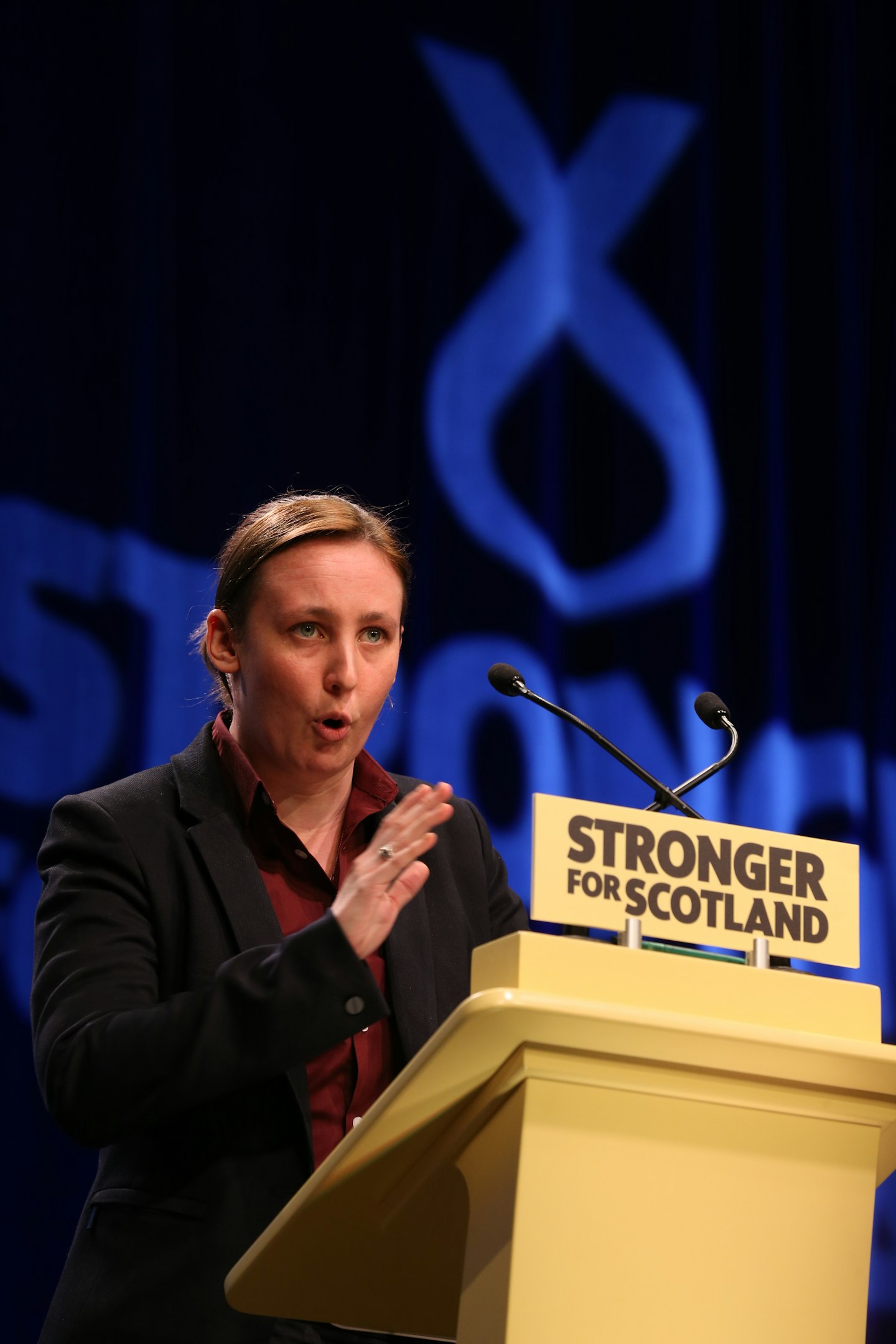 8 of 10
8 of 10Mhairi Black, Paisley and Renfrewshire South SNP MP
As part of the discussion about classing misogyny as a hate crime, Mhairi Black spoke out about the misogynistic and homophobic abuse she receives online every day. She also asked parliament to reflect on their own environment, stating, 'Only a few weeks ago I was physically pressed up against a Member (of Parliament) in the voting lobby who is accused of sexual misconduct because there's so little room.'Acknowledging she has the 'same right and influence as any other elected man', she spoke up for the female staff who aren't in her position.
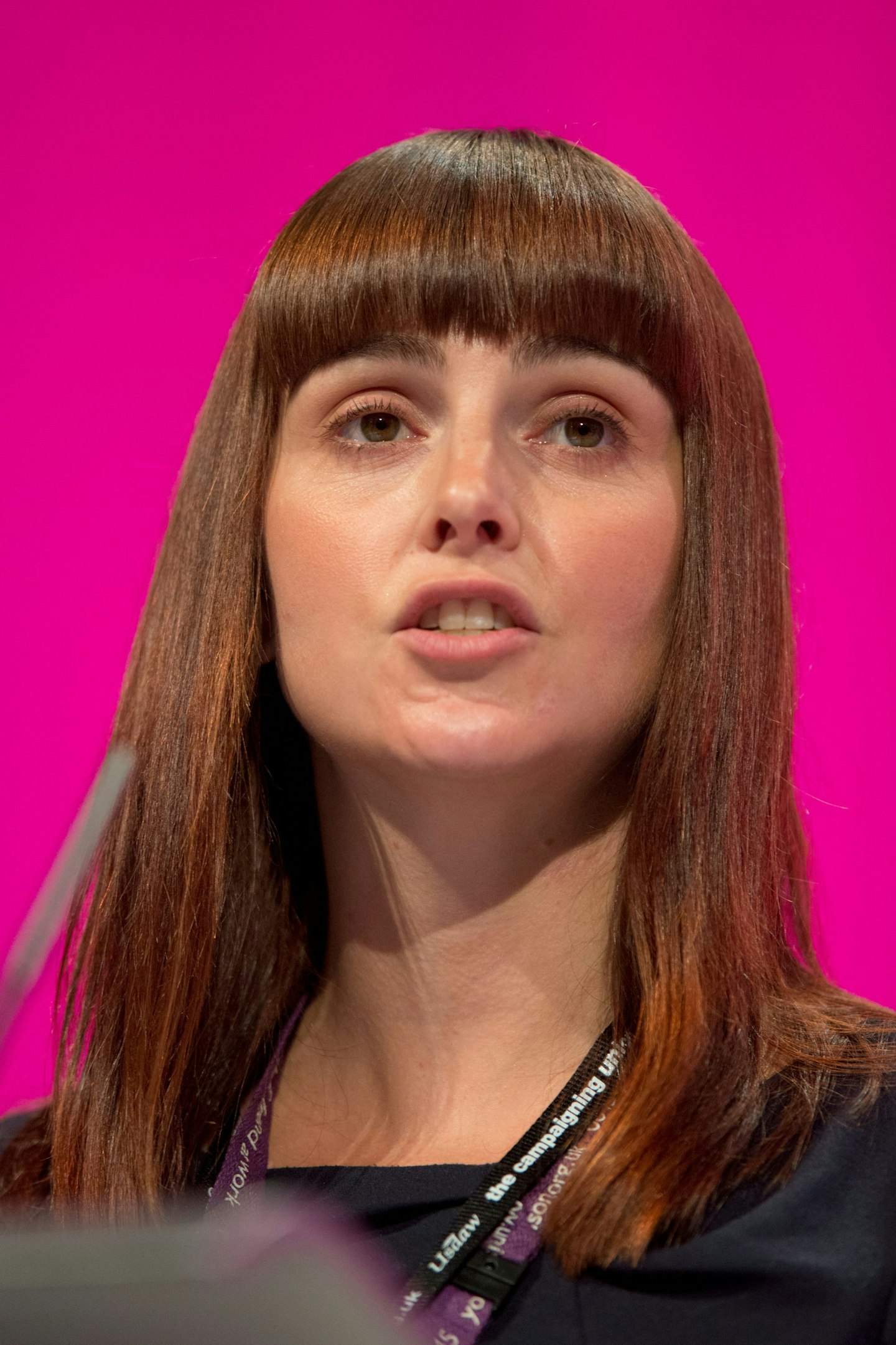 9 of 10
9 of 10Melanie Onn, 39, Great Grimsby Labour MP
Leading the charge to make misogyny a hate crime, Melanie highlighted the 'link between low-level harassment of women and more serious sexual assaults' that was found by Westminster's all-party group on domestic violence. In her constituency, the rate of domestic violence is particularly high. As a result, she has called for a law change to have misogynistic acts such as wolf-whistling, leering and sexual comments in public to be made a criminal offence.
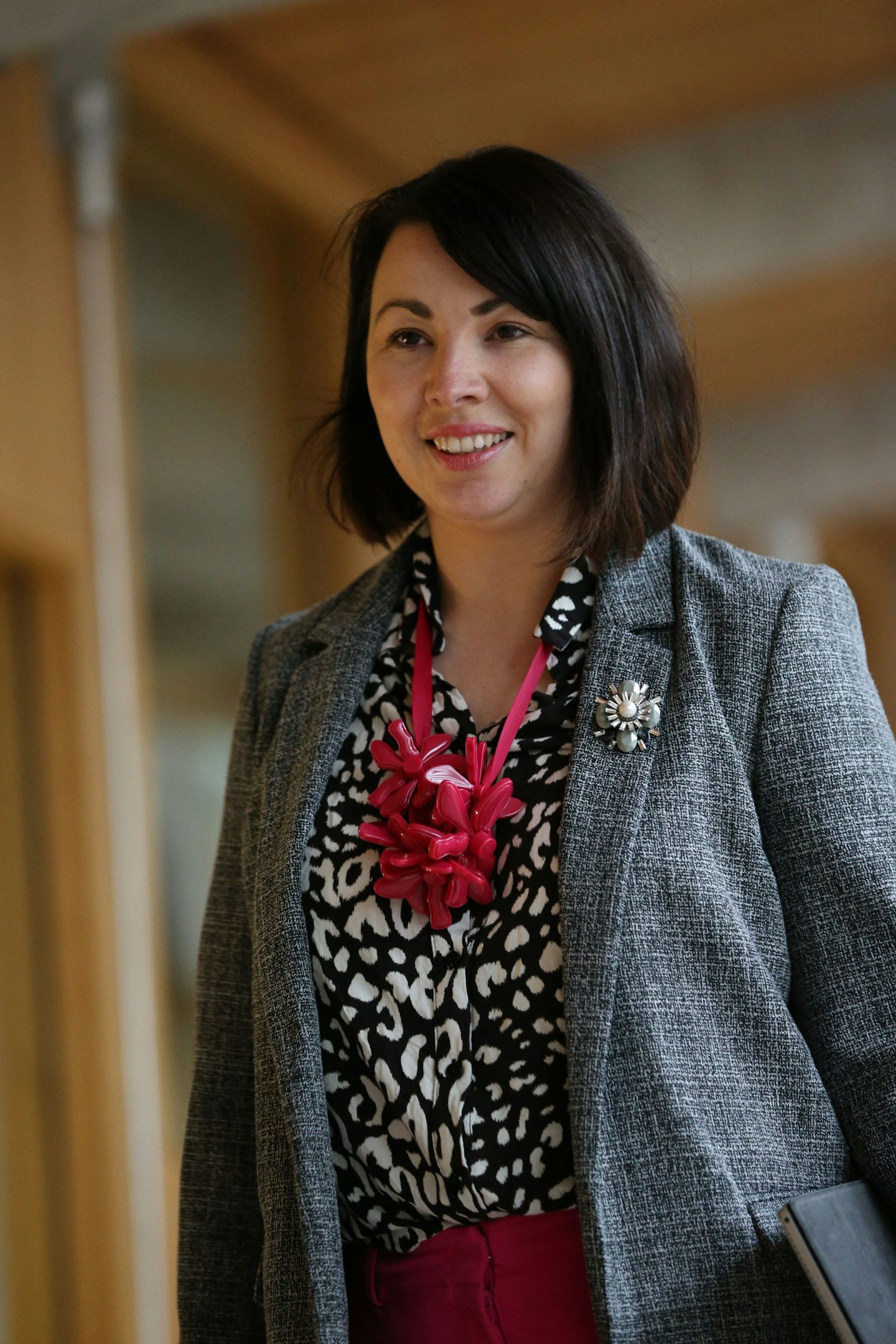 10 of 10
10 of 10Monica Lennon, 37, Central Scotland Scottish Labour MSP
Monica introduced a Member's Bill into Scottish parliament that would see the creation of free universal access to sanitary products. Proposing also that schools, colleges and universities provide free sanitary products in their toilets, she led the campaign that stands to end period poverty in Scotland.
